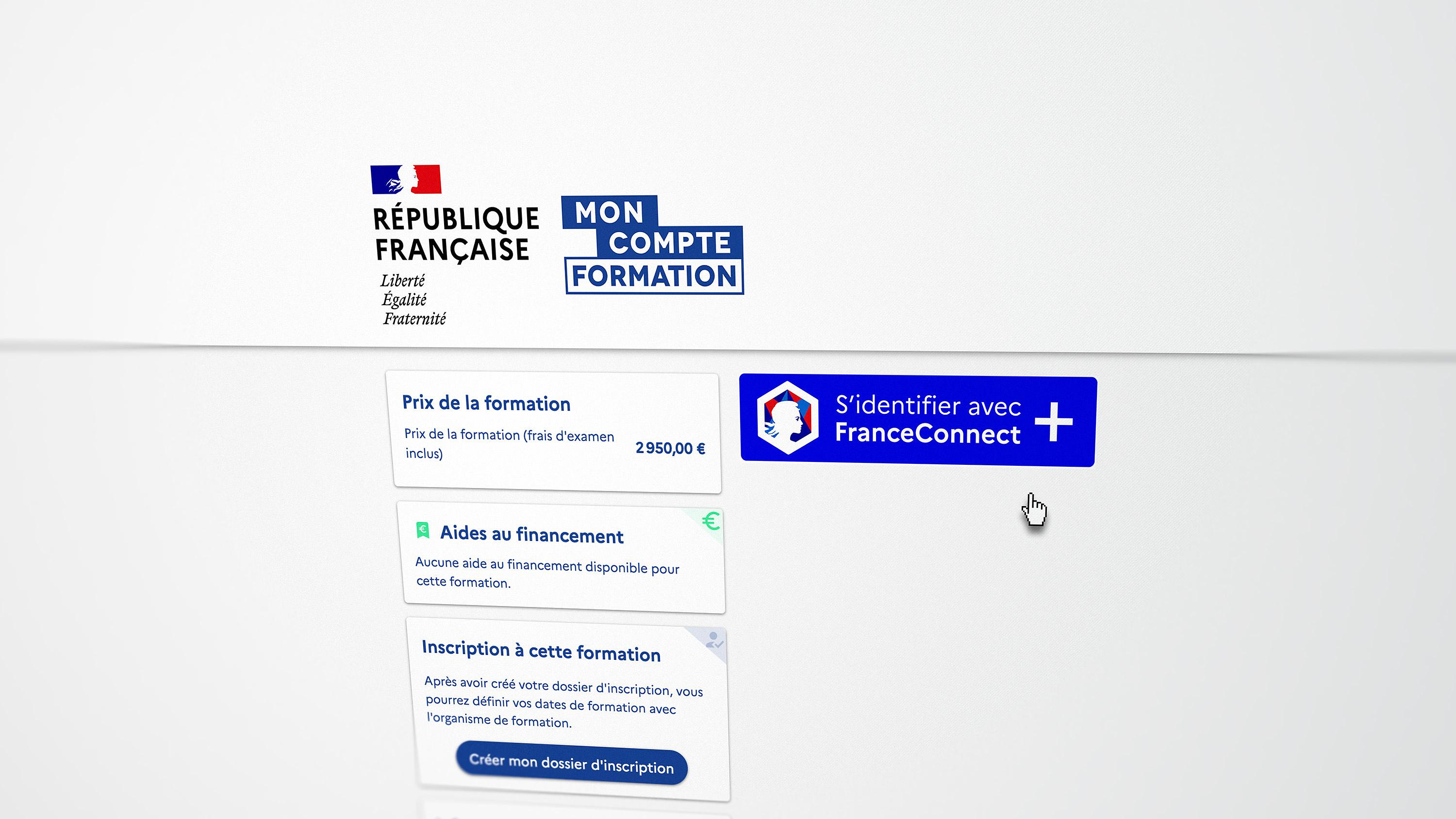“I’m officially out of work,” smiles Sabrina in front of her phone. In a ten-minute video on TikTok, the young woman “vlogs” her resignation process. “It took me five years to find this permanent contract,” explains the former barista, now unemployed. The trigger? Overtime and missions added to his position, without salary increase. Her story interested more than 100,000 people and generated numerous shares, and she is far from being an isolated case. On the platform, many people under 30 share their experiences.
Like Laura, 25, who left her position as communications manager. “One morning I was getting ready, I said in a video: I think I want to leave, I can't take it anymore. I read the comments and it gave me strength,” she explains to Le Figaro. The fruit of several months spent recounting his difficulties at work on his account. Initially, the young woman uses TikTok as a diary: she pours out her thoughts and doubts under the nickname @laura_zms. “I don’t confide much, even with those close to me. But with TikTok, you talk to yourself in your room, it’s easier.”
Then, the reactions accumulate, all her subscribers give her support and she finally makes the decision to resign. Since then, her profile has become a sort of forum where she gives advice to these young people tempted to follow the same path. A way to support each other in this previously taboo decision. Faced with this situation which could seem difficult, social networks serve as an outlet. And Laura's journey, like others, gives a certain legitimacy to advising young people who are sometimes confused by the job market.
“Don’t call in sick for a job”, “why did it take me so long to resign?”… Laura’s videos are very successful. The young woman has a community of 26,000 subscribers. Gen Z, i.e. people born after 1995, are passionate about these “storytime” where creators tell anecdotes from their lives in front of the camera. And for good reason... It is at this age that the professional future is most uncertain, while in 2025, Gen Z will constitute 27% of the global workforce according to the OECD.
Also read: When young people seek career advice on TikTok
“At only 25 years old, I went to work with a lump in my stomach, I pulled my hair out. My contractual termination was refused, so I sent an email to my boss presenting my resignation. I didn’t even go to his office,” confides Laura. “Resigning was one of the best decisions of my life.”
One of his most viewed videos presents the things to know before making this choice. “You need to have money saved so that you can be financially independent during this period because you are not entitled to unemployment,” advises the young woman. In the comments, many thanked her. “Girls, you don’t know how relieved I feel to see that I’m not alone in doing this, I felt really guilty,” wrote a user.
Same story with Julie, 25, who started creating content when she was burned out, under the nickname @lqbjulie. She also recounted her resignation on the Chinese application. “It resonated a lot with people, I was surprised by the impact of my video,” she recalls. His video has racked up nearly 500,000 views and gained him around 3,000 subscribers in just a few days.
In the comments, users identify with the young woman's journey, others even come to her private messages to ask her for advice. TikTok is increasingly establishing itself as a search engine and “advice” videos are widely watched there. Creators specialize in this type of content: Laurène Levy (256,000 subscribers) deciphers political, social and economic news around the world of work.
Also read: This new version of TikTok where time spent is paid in Amazon gift vouchers
“The resignation is now an act of resistance, it is almost a political gesture. It's having the courage to say: I refuse these working conditions. It is seen much less as a negative concept than before,” analyzes Thomas Simon, professor at Montpellier Business School and author of a thesis on the disillusionment of young people in business.
Gen Z's relationship with work clashes with their elders. “This generation is constantly looking for new things and learning,” assures Thomas Simon. “They don’t want to dedicate their lives to work and stay in the office until 11 p.m., they want more autonomy and see the results of their work at the end of the day.” This change in focus is particularly palpable on social networks, often the first witnesses of systemic upheavals. “No more generation of 40 years in the same metro company, work-sleep, we want to be happy,” comments a user under a video.
Also readAre the conditions for access to unemployment after leaving a job more favorable than after resignation?
A few months ago, it was “quiet quitting” videos that had millions of views on TikTok. “It’s staying at your job but doing the union minimum, a sort of internal desertion. Stay in the office until 5 p.m. sharp and not a minute more,” explains the professor of human resources management. In a study, the Jean Jaurès foundation also speaks of mental resignation. The think tank underlines that if in 2008, 62% of employees preferred to earn more money, but have less free time, today 61% of employees prefer the opposite.
“We are less afraid of the gaze of others and of making spontaneous decisions,” says Julie, at a time when the younger generation rarely spends more than five years in the same company. “We could take them for being eternally dissatisfied, but managers must adapt to this and satisfy them in order to retain them. It’s a challenge for organizations,” confirms Thomas Simon. An Apec study shows that almost half (47%) of workers under 30 consider their work to be as important, or even more important, than other areas of their life, compared to 36% of those over 44.
Catering, industry and commerce were the sectors most affected by resignations of permanent employees in 2023. However, these contract terminations fell by 3.4% over the last three months of the past year. The reason? The difficulty of quickly finding a job behind. Faced with this risk, and in search of greater autonomy, many young people turn to self-employed status after leaving their position.
Julie made this choice. A well thought out gesture. “I secured a little emergency capital, for example by selling my car before moving to Paris, and I always had some savings just in case.” She now owns an SAS with her partner, also her partner, and continues to tell the story of her daily life with “a day with me, entrepreneur edition” vlogs. These videos serve as both a logbook and also bring together a small supportive community interested in this life path. “Today, I could no longer be an employee,” summarizes the young woman.
Others take advantage of a break period before restarting their job searches. In a few months, Laura will set foot in Dubai to “improve her English”. An adventure that she has dreamed of for several years, and which she intends to stage on social networks. “To show what it’s like when you leave everything behind, and above all, to prove that you can get through it,” she concludes.

 Russia: schools will train children to use drones at the start of the school year
Russia: schools will train children to use drones at the start of the school year Austria: incestuous torturer Josef Fritzl, nicknamed the “national monster”, could soon be released
Austria: incestuous torturer Josef Fritzl, nicknamed the “national monster”, could soon be released An airline continues to treat a centenarian as a one-year-old baby
An airline continues to treat a centenarian as a one-year-old baby Germany: the trial of nine “Citizens of the Reich” conspirators begins this Monday
Germany: the trial of nine “Citizens of the Reich” conspirators begins this Monday Sánchez cancels his agenda and considers resigning: "I need to stop and reflect"
Sánchez cancels his agenda and considers resigning: "I need to stop and reflect" The Federal Committee of the PSOE interrupts the event to take to the streets with the militants
The Federal Committee of the PSOE interrupts the event to take to the streets with the militants Repsol: "We want to lead generative AI to guarantee its benefits and avoid risks"
Repsol: "We want to lead generative AI to guarantee its benefits and avoid risks" Osteoarthritis: an innovation to improve its management
Osteoarthritis: an innovation to improve its management Sanofi: demonstration in front of Paris headquarters against job cuts
Sanofi: demonstration in front of Paris headquarters against job cuts The Chinese car manufacturer BYD sets out to conquer France
The Chinese car manufacturer BYD sets out to conquer France Public finances: after the deputies, Bruno Le Maire asks the senators for savings avenues
Public finances: after the deputies, Bruno Le Maire asks the senators for savings avenues Faced with opposition from London, a fund supported by Abu Dhabi abandons the purchase of the Daily Telegraph
Faced with opposition from London, a fund supported by Abu Dhabi abandons the purchase of the Daily Telegraph Omar Sy on all cultural fronts
Omar Sy on all cultural fronts Jacques Audiard, Swann Arlaud, Benjamin Stora... A hundred men from cinema, theater and books in support of
Jacques Audiard, Swann Arlaud, Benjamin Stora... A hundred men from cinema, theater and books in support of Resale, scams and fake tickets: how not to get scammed before Taylor Swift concerts
Resale, scams and fake tickets: how not to get scammed before Taylor Swift concerts Isild Le Besco is not ready to file a complaint against Benoît Jacquot
Isild Le Besco is not ready to file a complaint against Benoît Jacquot Omoda 7, another Chinese car that could be manufactured in Spain
Omoda 7, another Chinese car that could be manufactured in Spain BYD chooses CA Auto Bank as financial partner in Spain
BYD chooses CA Auto Bank as financial partner in Spain Tesla and Baidu sign key agreement to boost development of autonomous driving
Tesla and Baidu sign key agreement to boost development of autonomous driving Skoda Kodiaq 2024: a 'beast' plug-in hybrid SUV
Skoda Kodiaq 2024: a 'beast' plug-in hybrid SUV The home mortgage firm rises 3.8% in February and the average interest moderates to 3.33%
The home mortgage firm rises 3.8% in February and the average interest moderates to 3.33% This is how housing prices have changed in Spain in the last decade
This is how housing prices have changed in Spain in the last decade The home mortgage firm drops 10% in January and interest soars to 3.46%
The home mortgage firm drops 10% in January and interest soars to 3.46% The jewel of the Rocío de Nagüeles urbanization: a dream villa in Marbella
The jewel of the Rocío de Nagüeles urbanization: a dream villa in Marbella Europeans: a senior official on the National Rally list
Europeans: a senior official on the National Rally list Blockade of Sciences Po: the right denounces a “drift”, the government charges the rebels
Blockade of Sciences Po: the right denounces a “drift”, the government charges the rebels Even on a mission for NATO, the Charles-de-Gaulle remains under French control, Lecornu responds to Mélenchon
Even on a mission for NATO, the Charles-de-Gaulle remains under French control, Lecornu responds to Mélenchon “Deadly Europe”, “economic decline”, immigration… What to remember from Emmanuel Macron’s speech at the Sorbonne
“Deadly Europe”, “economic decline”, immigration… What to remember from Emmanuel Macron’s speech at the Sorbonne These French cities that will boycott the World Cup in Qatar
These French cities that will boycott the World Cup in Qatar Football: the CAS suspends the sanction of Gabigol who will be able to play again
Football: the CAS suspends the sanction of Gabigol who will be able to play again Wrestling: everything you need to know about the sport
Wrestling: everything you need to know about the sport Luis Enrique before Dortmund-PSG: “We must not see pressure as a threat”
Luis Enrique before Dortmund-PSG: “We must not see pressure as a threat” Tennis: the astonishing ploy of Medvedev’s coach to avoid being filmed in his box
Tennis: the astonishing ploy of Medvedev’s coach to avoid being filmed in his box

















